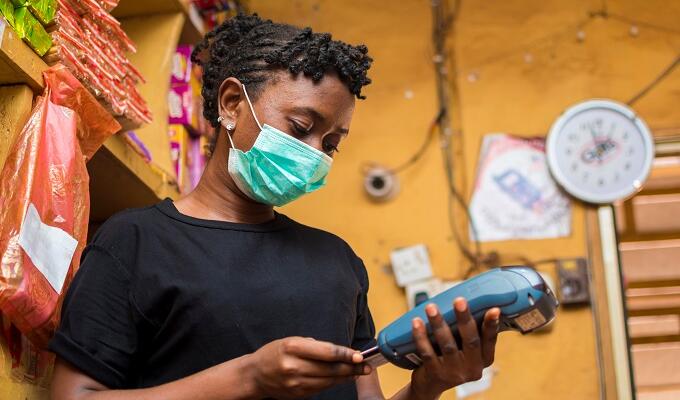

African growth: A new model for a post-COVID-19 world
More than ever, the creation of a single continental market remains a game changer
The coronavirus pandemic has triggered a new economic paradigm that is as unprecedented and radical as the Great Depression. Although the economic consequences of this global crisis are still unfolding, its impact on African economies is already alarming.
For the African Continental Free Trade Area (AfCFTA) and other multilateral bodies, mitigating the effects of the pandemic is not only the priority for today. It is also vital to salvage past gains and to maintain carefully laid plans for the future.
The AfCFTA is a far-reaching initiative, designed to foster industrial development and ensure Africa’s prosperity. To this end, it seeks to create an institutional ecosystem to address the continent’s marginal role in global value chains, its structural trade imbalance and its overreliance on bumpy commodity markets – namely, mineral resources and fossil fuels.
The global drop in industrial production means less demand for key African exports amid a collapse of international trade and a disproportionate decline in the terms of exchange. The pandemic has not only crippled the production sector; it has also ruined the travel and hospitality industry, which had flourished for two decades. The obliteration of services trade and the predicted sharp decline in international remittances due to the global recession are shaking the foundations of the prevalent model of growth, steered by the tertiary sector.
Calls for debt relief in international fora overshadow the perennial reality of Africa’s marginal role in global supply chains, which creates a recurrent shortage of foreign exchange. This limits the continent’s ability to absorb the fallout of a sharp downturn in the global economy. As the effects of the pandemic deepen and the crisis grows in magnitude, it is clear that a model of development that depends heavily on raw commodity exports has reached its limits.
Africa must step up production of drugs and medical supplies
The pandemic highlights the need for African Union members to manufacture more pharmaceuticals. Some countries, such as Egypt and Morocco, rapidly boosted production to meet demand. However, many African governments face limited access to essential drugs and health equipment due to shortages aggravated by restrictions that many countries imposed on exports of medical supplies (including personal protection equipment).
The AfCFTA is anchored on trade liberalization, even as global supply-chain disruption is likely to further deteriorate the world’s overall sanitary position. Member states require fair access to critical equipment. The AfCFTA Secretariat encourages member states to turn this crisis into an opportunity by redeploying their production so there is an extraordinary increase in the fabrication of drugs, personal protective equipment, soap, hand sanitizers, intensive care unit beds, testing kits and even ventilators.
The AfCFTA has a dual track approach. In the short term, its priority is to ensure that intra-African trade continues to grow, by alleviating trade restrictions while promoting a policy of ‘local production first’ whenever available and competitive. In the medium term, the AfCFTA’s strategy is to champion the development of a credible pharmaceutical industry capable of meeting Africa’s growing demand, and even playing a role in the global market.
Recognizing the effect of border closures on trade, the Assembly of Heads of States of the AU established trade corridors or ‘green lanes’ that allow for the free flow of essential medical goods used in the fight against the pandemic. Support and resources also were garnered for the pharmaceutical industry to produce affordable medicines and medical equipment to meet African demand.
The AfCFTA plays a vanguard role in spurring rapid industrialization through regional trade integration: a focus on small industrial enterprises to boost trade among African states and create jobs.
As a by-product of regional integration, industrialization will strengthen economic diversification and resilience.
Resetting priorities
The AfCFTA is a nascent giant. It is respected by its partners for its potential strategic significance to become the largest and most dynamic regional market by 2030. Unfortunately, the pandemic struck just as the AfCFTA’s organizational framework was being finalized, delaying many milestones scheduled for 2020.
Nevertheless, the AfCFTA has capitalized on the goodwill of member states to provide the impetus to coordinate national and regional institutions that ensures coherent policymaking and better coordination with the private sector, by bridging the information gap. In a sense, the disruption in the global supply chain caused by COVID-19 – and the economic downturn that followed – provide a powerful rationale for the immediate implementation of AfCFTA, as a vehicle to spur economic growth and build resilience across the continent.
African businesses, mostly small and medium-sized enterprises, have been at the forefront of the pandemic response. They have unveiled many innovations, from providing medicines and medical equipment to redesigning new supply chains to prevent shortages. The AfCFTA must embrace this new spirit of industrial development in Africa.
The AfCFTA Secretariat supported this positive development by advocating for the establishment of deep value chains to boost intra-African trade and accelerate investment in pharmaceutical industries. While trade information was non-existent at the beginning of the pandemic, a catalogue of African drug companies and production is now being compiled. It will be circulated to relevant national authorities. With the African Union Commission, we are looking into harnessing digital trade and e-commerce as key drivers to implement AfCFTA effectively.
Fighting the pandemic has led us back to the drawing board to reset our priorities for AfCFTA. We called for adequate support (including financial) for small drug companies so they could expand their production capacity and improve the range and the sophistication of their output. Seizing the crisis to unlock the vast potential of Africa’s pharmaceuticals market will indeed be a key achievement for the AfCFTA in its early years of existence.



